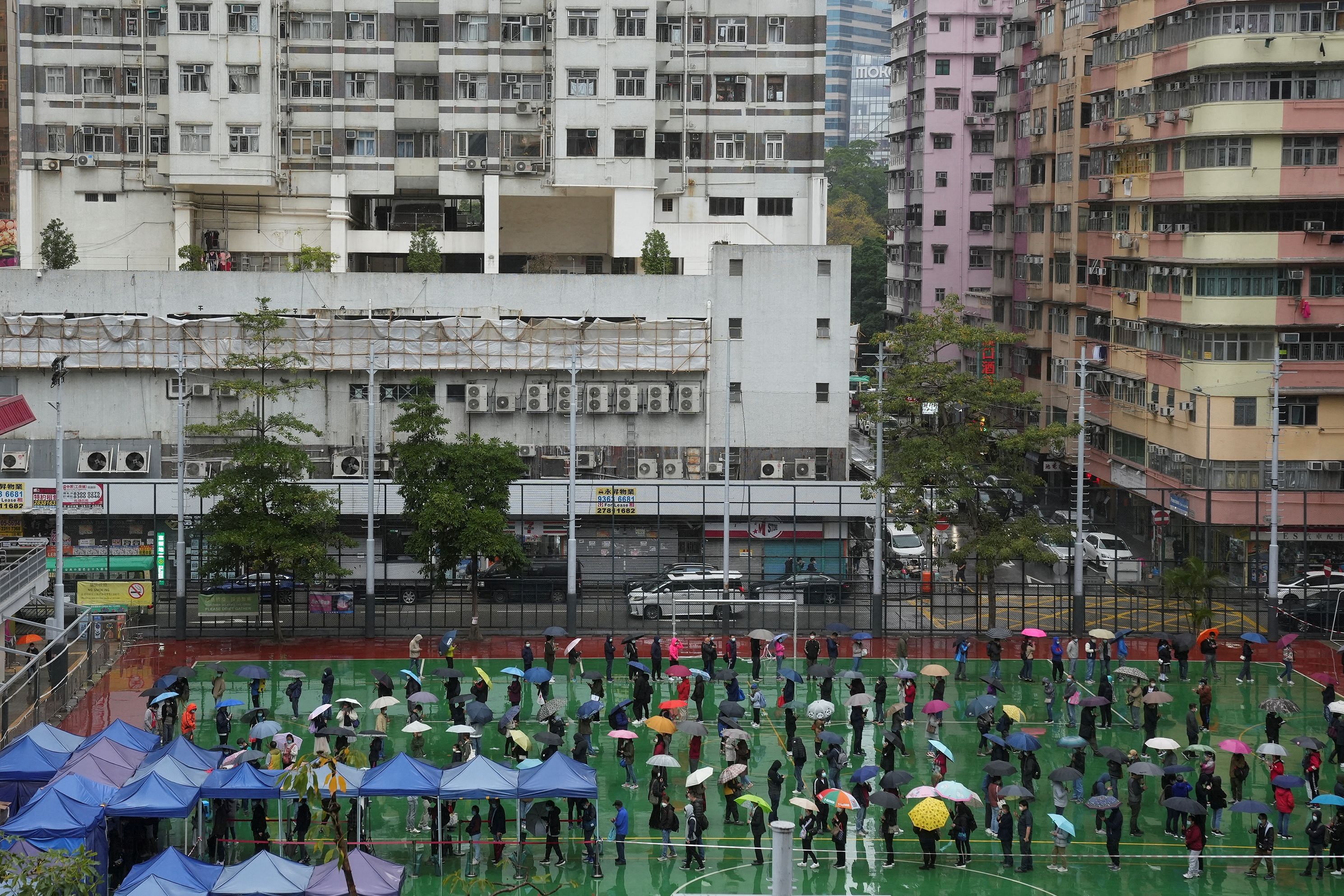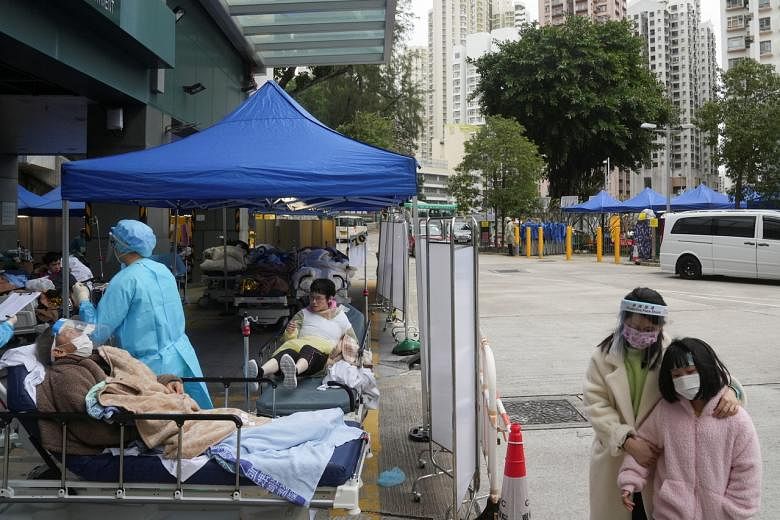HONG KONG - The authorities have moved to further tighten Covid-19 restrictions in an effort to curb a fifth wave of infections that has pushed healthcare staff and infrastructure, isolation facilities and testing capacity to almost breaking point.
A vaccine pass is being introduced over three phases for entry to various places.
On Monday (Feb 21), officials announced that from Thursday, only those who have had at least the first dose of a vaccine can enter various premises such as eateries, shopping malls, supermarkets, clubhouses and wet markets.
The first phase of the vaccine pass will be in effect until April 29, and everyone above the age of 12 must show their vaccination status either through the LeaveHomeSafe app or have a physical certificate in their possession. Those with proof of exemption from a doctor can also enter these venues.
The second stage will be from April 30 to June 29. Persons aged 18 or above are required to receive at least two doses of vaccine to continue to use the vaccine pass, while the requirement for those aged 12 to 17 remains the same as in the first stage.
The third stage will start from June 30. The vaccine pass for those aged 18 or above who have received two jabs for less than nine months will be considered valid. They will need a third jab to be able to use the vaccine pass if they took their second dose for at least nine months.
For those aged 12 to 17, their vaccination records would be considered valid if they took their first shot in less than six months. They are required to get a second jab to continue to use the vaccine pass if their first jab is six months or more.
“For vaccinated persons, even if they do test positive, their condition will be relatively mild and their viral load will decline at a faster rate, and this would help alleviate the burden on our healthcare system, which allows those with genuine medical needs to receive proper care and treatment,” said Deputy Secretary for Food and Health Kevin Choi.
Residents were told to be proactive in presenting their vaccination records or exemption certificates in eateries and clubhouses, and operators must scan the QR codes for verification purposes.
Those entering places such as shopping malls, department stores and markets will be subject to spot checks.
“They simply have to bring their vaccination records in the same way they bring their Hong Kong identity cards,” said Mr Choi.
Unvaccinated people can still enter shopping malls but only if the trip is for buying food for takeaway.
So far, about 79 per cent of the 7.4 million population in Hong Kong has had one dose of the vaccine and about 68 per cent both doses.
On Sunday, Secretary for Food and Health Sophia Chan said on a radio programme that the government was looking at ways to tighten already strict social distancing measures on the territory.
Currently, public gatherings are capped at two, private gatherings are capped at two households and dining at eateries is banned from 6pm to 5am.
Citing sources, local media said the number of patrons per table could be halved to two for restaurants with staff and customers vaccinated, while gyms and beauty centres would remain shut.
Hong Kong on Monday recorded a further 7,500 infections, bringing the total in the territory since the pandemic started to more than 60,300, with more than 280 deaths.
An 11-month old baby became the city's youngest casualty on Monday.
Another 6,800 cases were recorded as positive preliminarily.
The surge in infections has placed tremendous pressure on the city’s Covid-19 care facilities as well as staff, with many patients seen waiting outside public hospitals last week as beds were full.

Scrambling to deal with the situation, the authorities have had to tweak policies constantly.
Asymptomatic carriers are now being allowed to undergo quarantine in community facilities or at home, while close contacts may isolate at home. Previously, even those with mild symptoms were admitted to hospitals and close contacts sent to quarantine camps.
One such patient, Ms Penny Chan, 35, who told The Straits Times that she has been in isolation for more than two weeks, finally received her test results on Monday and was informed that she could leave the Penny’s Bay quarantine centre. But there was another hitch.
“They can’t promise when I can leave, maybe today, tomorrow or even the day after. I heard that there are 800 people waiting to leave Penny’s Bay but not enough shuttle buses. And they said I can’t arrange the transportation by myself,” said Ms Chan, who works in public relations.

Over the weekend, the chairman of the Hong Kong Private Hospitals Association, Mr William Ho, was quoted as saying that private hospitals were in talks with the government on the possibility of taking over care of non-Covid-19 patients, to free up beds at public hospitals.
About 200 buses and minibuses were also reported to have started ferrying patients with mild or no symptoms to isolation facilities. This was on top of the 300 taxis deployed to ferry patients to and from designated clinics.




